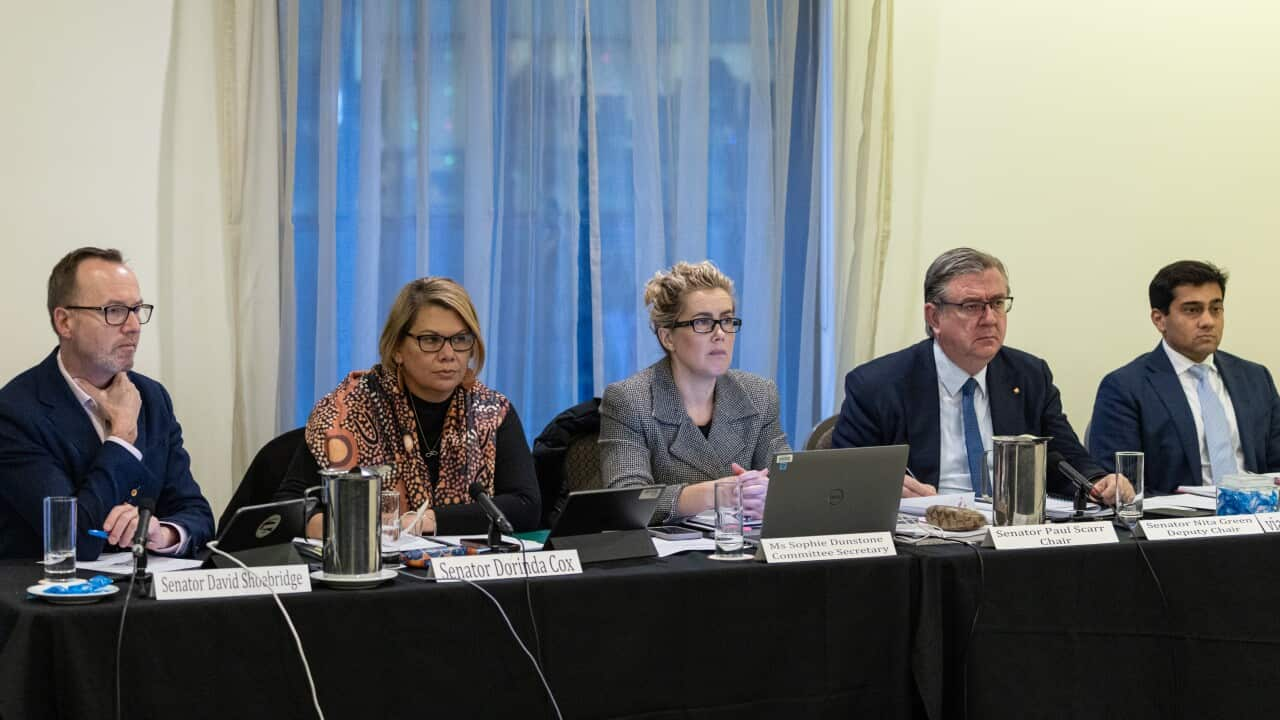Australia is not a safe place for Aboriginal women and children who are often criminalised or not taken seriously when they report violence or go missing, an inquiry has been told.
Children are labelled ‘absent’ when they go missing from out-of-home care which puts the blame on them, Victorian Commissioner for Aboriginal Children and Young People Meena Singh said.
“I’ve seen too often children who go missing and are talked about by people in the department [of families] as ‘oh that’s what they do, they go missing, they go away for a few days’,” she said.
“Which is absolutely abhorrent … if that was your own child and that was happening, you would be mortified that your child just wasn’t coming home.
“The stories of those children that are found and brought back, they’re often brought back in the back in a divvy (police) van – they’re criminalised by the process of not being at their residential care unit.”
About 2,700 Indigenous children are in the out-of-home care system in Victoria, Ms Singh told the Senate inquiry into missing and murdered First Nations women and children.
This represents one in nine Indigenous children across the state.
Ms Antoinette Gentile delivers a witness statement during the inquiry into missing and murdered First Nations women and children by the Legal and Constitutional Affairs References Committee, in Melbourne. Source: AAP / Diego Fedele/AAP Image
Aboriginal women and children do not see police as people to go to to seek help, because of fear of criminalisation, Ms Singh told the hearing in Melbourne.
Antoinette Gentile, the acting chief executive of Indigenous-run service Djirra which supports women affected by family violence, said 90 per cent of family violence against Aboriginal and Torres Strait Islander women went unreported in Victoria.
Almost one-quarter of the women Djirra worked within 2023 were mistaken by police as perpetrators of family violence, she told the inquiry.
“Misidentification leads to criminalisation, incarceration and is a major contributor to the removal of our children,” Ms Gentile said.
“Djirra has supported women who have reported violence to police only to be issued with a warrant for their arrest, often over poverty-related offending such as unpaid fines.”
The inquiry also heard from advisor and activist Martin Hodgson, who is a senior advocate at the Foreign Prisoners Support Service.
He said while domestic and family violence is a “true cancer” on Australian society, it is not the only reason Aboriginal women are murdered or disappear.
First Nations women are killed at the hands of “violent, racist, hate-filled men”, and families of those missing have been ignored by police and told their loved one had ‘gone walkabout’,” Mr Hodgson told the inquiry.

Ashlee Donohue – Stop The Violence
“The families I currently represent, whose loved ones – Aboriginal women and children – who are missing and murdered involve non-Indigenous men as the prime suspect.
“The police have either bungled the investigation, failed to deploy adequate resources, and have been underpinned by shocking police racism.”
Australia needs a peak body made up of First Nations people to assist families with loved ones who are missing or murdered, to influence policy and hold police to account, Mr Hodgson said.
Australia is not a safe space for Aboriginal women and children, it’s a national disgrace.
“Bandaid measures will not solve this tragic state of affairs, that has existed for more than 200 years and continues to this very day.”
Ms Gentile called for a royal commission into the issue of missing and murdered First Nations women, and a complete system overhaul.
“We are tired of seeing our women being killed, seriously injured or missing, whether that be by a person who uses violence or because of failed government systems and processes, which see our women incarcerated and die,” she said.
“We need to end this crisis. Aboriginal women have been invisible for too long, we must be seen, heard and counted, but not through a deficit lens.”
1800 RESPECT (1800 737 732)
Lifeline 13 11 14


